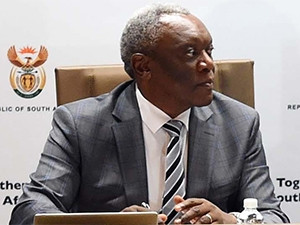
President Jacob Zuma's decision to play musical chairs with key portfolios in his Cabinet sent shockwaves throughout SA. However, the fact that there was no leadership change in the telecoms department is seen as a sign of the importance of implementing government's newly adopted ICT policy.
Although it was all change at the Department of Communications, the Department of Telecommunications and Postal Services (DTPS) remains the same, with minister Siyabonga Cwele still at the helm.
According to Richard Hurst, director of enterprise research at Africa Analysis, the fact that Cwele was not part of this shuffle "will give impetus to his much-covered National Integrated ICT Policy White Paper".
The decision to ensure Cwele continues running the DTPS is a sigh of relief for key stakeholders in the ICT industry, says the SA Communications Forum (SACF).
In a statement, SACF chairperson Loren Braithwaite-Kabosha says the ICT Policy White Paper process has been a five-year journey, from the appointment of the ICT policy review panel in 2012, to the release of the white paper last year.
"Until the policy was finalised, access to critical radio frequency spectrum which is essential for the development and growth of the industry was delayed, investment in critical innovation and advancement was stalled, and as a result, the country's GDP [gross domestic product] growth was impaired."
Braithwaite-Kabosha adds: "We are now at a critical stage of dialogue and engagement as the industry with minister Cwele and the department on models of implementation of the ICT Policy White Paper. A change in leadership at this moment might have set the process backwards by many months, if not years.
"It was a change the industry could ill afford."
Moving ahead
After a drawn-out consultative process, Cabinet finally approved the much-anticipated National Integrated ICT Policy White Paper last September. It is supposed to replace the separate white papers on telecommunication (1996) and postal services (1998).
Government says the white paper seeks to facilitate radical transformation of the ICT industry by creating opportunities for small, medium and micro enterprises, black, youth and woman-owned entities to participate meaningfully in the sector and economy.
Although the ICT policy was initially welcomed, further inspection of its proposals attracted mixed reviews from analysts and industry experts. It has also been said that at face value, the government policy is forward-looking but has the potential to create chaos within a mature industry that has been functioning efficiently.
The industry proposed a rethink of the proposed frameworks; however, the department said it has no plans to renegotiate its ICT Policy White Paper but is considering proposals from the industry on how the policy can be implemented.
In February, the DTPS hosted an industry meeting to unpack implementation of the ICT policy. It noted it had hosted five consultative processes on the implementation of the white paper since Cabinet approved the policy.
According to the department, it has shared its draft implementation plan and the accompanying legislative programme with role-players.
Civil disobedience
SA has been reeling from last week's Cabinet reshuffle, which has resulted in public and business leadership outcry, as well as civil society organisations taking to the streets in protest of Zuma's decisions.
In the wake of the Cabinet overhaul, ratings agency Standard & Poor's (S&P) also decided to downgrade SA's credit rating to junk status.
According to S&P, its decision to downgrade SA's sovereign credit rating was influenced by political instability, fiscal slippage and slow growth.
These developments resulted in a call for a business shutdown on Friday, a move government has labelled as civil disobedience.
A statement from the Government Communication and Information System says: "Friday is a normal working day, despite social media messages calling for a shutdown."
The department's acting DG Donald Liphoko says while the public has a democratic right to embark on protest action, government does not support acts of civil disobedience and the actions of a select few to infringe on the constitutional rights of the majority.
"When citizens take to the streets illegally, we often witness violence, destruction of property and lawlessness. These illegal protests do not possess the characteristics of strengthening democracy. Those found guilty of any form of violence will face the might of the law."
Share